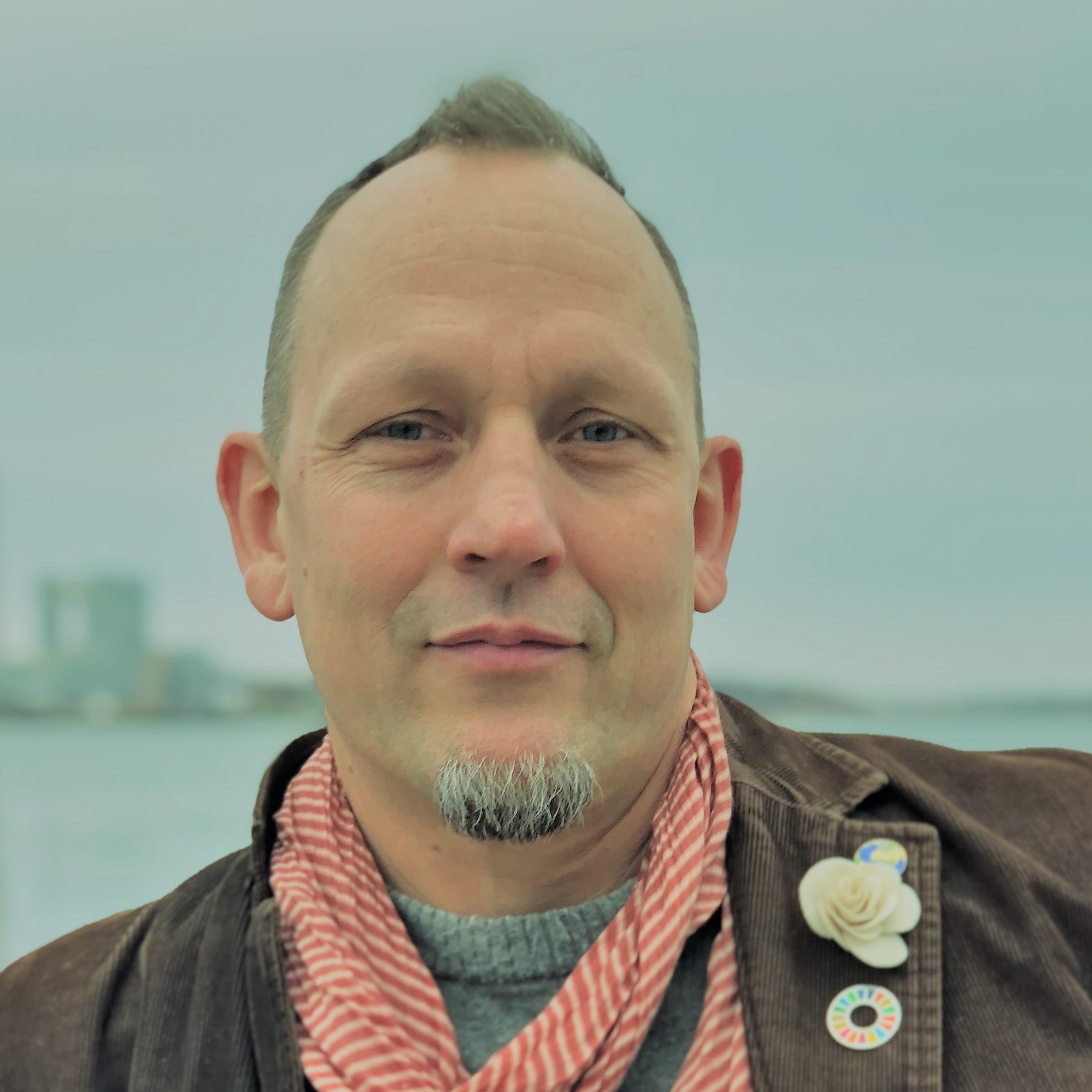C. Patrick Heidkamp, Ph.D.
Kontakt
Kontakt

Office Hours
Office Hours:
Monday 14.00 to 16.00
Thursday 14.00 to 16.00
Biography
Dr. Heidkamp is a native of Germany and has lived and worked in the United States since 1993. He is a Professor of Geography in the Department of the Environment, Geography & Marine Sciences at Southern Connecticut State University (SCSU) and serves as one of the Co-Directors of the CSU System Center for Environmental Literacy and Sustainability Education. He is an affiliate of the Economic and Social Rights Research Group at the University of Connecticut’s Human Rights Research Institute and holds an ongoing post as Visiting Lecturer at the University Centre of the Westfjords in Iceland. In addition, he currently serves as the Vice-Chair of the Coastal and Marine Specialty Group of the American Association of Geographers.
He is a broadly trained geographer with research interests in environmental economic geography, sustainable development, the geography of human rights (specifically economic rights), and the history and philosophy of geographic thought. His current research focuses on transdisciplinary engagement with the blue economy and just sustainability transitions in the coastal zone. He is especially interested in furthering Critical Pragmatism as an underlying ontology to getting things done—rather than just talking about it.
Current research interests
Environmental Economic Geography, Just Sustainability Transitions, Economic Rights, Blue Economy
Regional interests
North America, Arctic, Iceland, South Africa
Recent publications
Heidkamp, C. P., Garland, M. and Krak, L. (2021) Enacting a Just and Sustainable Blue Economy Through Transdisciplinary Action Research. Geographical Journal. Pub Date: 2021-08-24, DOI: 10.1111/geoj.12410 Available here.
Garland, M., Axon, S., Morrissey, J., Graziano, M. and Heidkamp, C. P. (2019) The Blue Economy: Identifying geographical concepts and sensitivities. Geography Compass, 13 (7), 1-21, DOI: 10.1111/gec3.12445 Available here.
Heidkamp C.P. and J. Morrissey (Eds). (2018) Towards Coastal Resilience and Sustainability. London and New York: Routledge Available here.
Teaching at the University of Cologne
Environmental Economic Geography/Geography of Transitions (VL)
This lecture/ course focuses on the theory and applications of economic geography to environmental issues. To aim is to provide students with the contextual information and awareness of the spatial distribution and spatial interaction of economic activities and their relationship to environmental issues in a rapidly globalizing world economy and to aid students in placing this relationship in the context of broader social and political institutions and dynamics. To do so the course examines several core themes/concepts which all contribute to the understanding of sustainable economic geographies and the roots and compass of environmental economic geography. The lecture materials and assigned readings emphasize the burgeoning literature on the geography of sustainability transitions.
Urban Geography of Small to Mid-Sized Cities in North America (OS)
This course studies of the distribution, functions and internal structure of North American Cities. But rather than focusing on external forces shaping structure and patterns of city development, we will emphasize the internal structure of the North American city. Here we will consider both urban morphology (i.e., the form and structure) as well as the multitude of social and economic relationships that compose the city. We will examine how local experiences and conditions are shaped by economic, cultural, and social dynamics and how these dynamics intersect with issues surrounding race, class, and gender, leading us to a deeper understanding of how identity and place shape one another. In this context, we will also discuss urban planning, politics and governance practices in the North American context. The readings for the course will consist of seminal writings by urban geographers, urban planners and others researchers who have contributed to the rich body of work on North American cities, as well as some lesser known empirical case studies aimed at highlighting different methodological approaches in urban geography.
Enacting a Just and Sustainable Blue Economy through Transdisciplinary Action Research (LS)
The Blue Economy paradigm focuses on the sustainable use and conservation of ocean resources for improved wellbeing, social equity, and healthy aquatic ecosystems and has gained significant attention among government organizations, development agencies, politicians, academics, entrepreneurs and businesses as being a new, integrated approach to community and regional development. This seminar aims to introduce students to the burgeoning and often conflicting Blue Economy discourse and challenges students to critically analyze community development efforts that are sold as Blue Economy initiatives. Students will engage with a variety of concepts such as the Geography of Transitions, Just Sustainability Transitions, Critical Pragmatism, and will be introduced to a number of Blue Economy Focused Transdisciplinary Action Research projects in order to help them develop their own framework for critical analysis.